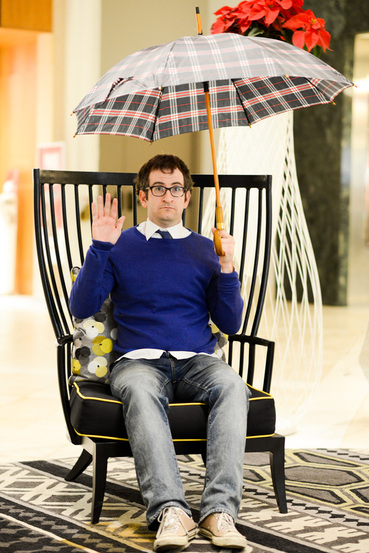 I first met Danny Jacobs in my Upright Citizens Brigade (UCB) improvisation class. It was a beginner’s class, but when I saw Danny get up on stage, I knew it was not his first time doing improv. In fact, I was confused as to why he was even in the class! But I’m glad he was, because watching his short performances became a highlight for me every week. He performed fearlessly, and was unapologetic and confident with the choices he made on stage – which, let’s be honest, if you’ve ever taken an improv class, is not the easiest thing to do. Later, I found out he, in fact, did perform with The Groundlings (another infamous improv company), and had his own two-person show. When I finally was able to make it out to see his show, The Understudies, I was blown away. It was one of the most impressive performances of any kind I’d ever seen! I knew I wanted to interview him as an improv actor, but I soon discovered that improv was just scratching the surface of his many incredible talents. I’m so honored Jacobs took the time out of his extremely busy schedule (as you’ll see!) to let us in on his journey as a creative in the entertainment world. Read on for a very entertaining and insightful interview with one of the most talented, hardworking people I’ve ever met, and find out why Chris Messina (who stars in his first feature film) punched a hole in Jacobs' wall! 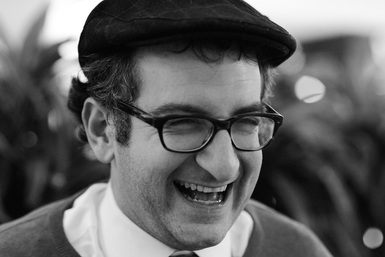 1) Can you tell us a little bit about yourself, where you're from, and how you got interested and involved in acting? I grew up in the metropolis of St. Louis, Missouri as a poor black boy. I have an older brother who is a prosecutor for the justice department. And pickles are my favorite food. Most of that is true. I didn’t get involved in acting until I was an undergrad at Stanford. Growing up, I was way too into academics and had almost no time left over for anything but the millions of clubs I was involved in. I was getting into movies as a teenager but wasn’t a performer in any way. Then, when I got to Stanford, on a whim almost, I auditioned for this thing called Gaieties – which is a student written, produced and performed musical that focuses on the Stanford – Berkeley rivalry. It’s a ridiculous show and it’s hard to call it “theater”. It’s more like some weird combination of burlesque, sketch and Kabuki. But I loved it and I basically spent the next four years doing as much acting as I possibly could – from Shakespeare, to Chekhov to everything in between. 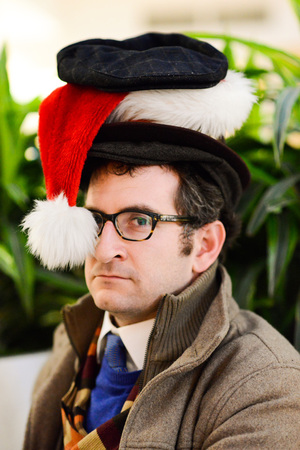 Jacob wears a lot of hats. Literally and metaphorically. Jacob wears a lot of hats. Literally and metaphorically. 2) In addition to being an actor, you are an improviser, writer, and director. Can you tell us how you got started in these other fields, and what are the things you like most and dislike about each one? Which one do you consider your main passion? At the end of my first quarter at school, I attended a show by the SImps (Stanford Improvisers), and was called up on stage as a volunteer for a type of short form game called “Standing-Sitting-Kneeling-Lying.” Even now, years and years later, I can recall that moment with such clarity. It was as if a switch turned on in my brain that had never been switched on before. I can recall the details of that scene with a frightening amount of detail. And I remember feeling an intense calm as the scene played out. I just instinctively knew what to do. And it changed my life. Creatively, it was a real fulcrum for my journey as an artist. I love the form with all my heart, though, and it can sometimes be difficult for me when I see improvisers that don’t respect the form. When I see jaded, casual, gaggy improv, it just disheartens me because it propagates this idea that improv is only about telling jokes or making people laugh, instead of what I view it as: a rival to great theater. I think improvisation can do anything that a great play can – it can make you laugh, cry and gasp. And when I see the bar set low, it really bothers me. Soap box over.
But the truth is that I don’t consider any of the things I do to be my “main passion.” Instead, each medium allows me to express a different part of who I am. The actor side of me is that child-like part, the vulnerable part that gets scared by the dark. The writer side of me is the neurotic side, the nail-biter and the nighttime thrasher. The director side of me is the daddy, the perfectionist and the boss. And the improviser is just the playful side, the mischievous part that used to get into trouble all the time for talking in class.
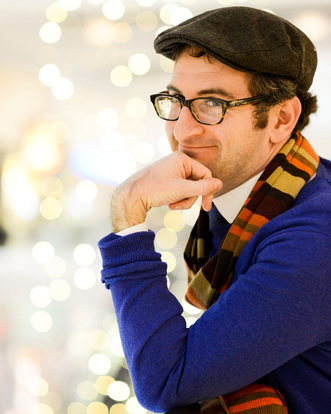 4) You're directorial debut was with the feature film, Humboldt County. What was your process in making the movie? When Darren and I got to Los Angeles after college, we started working on a script which we thought was going to be our first film. But we were having trouble getting inspired while writing at the Denny’s on Sunset at 2 AM surrounded by pimps and prostitutes, so Darren suggested we head up to Humboldt County in Northern California. He had family up there and thought we could get a cheap hotel room for a month, hole ourselves up in the redwoods, and write our faces off. It was a super romantic idea of writing and it worked, just not in the way we expected. When we got up to Humboldt, Darren introduced me to his family and I was immediately interested in their lifestyle and world more than the script we had gone up there to write. Darren’s uncle was a UCLA physics professor who had a mid-life crisis in the early 1980s and moved into the middle of the woods of Humboldt and started growing pot for a living while continuing his work in physics. And what we found up there was a whole little ecosystem of fascinating people who, for one reason or another, had abandoned the world. Some were aging hippies who had lost their way, while others were hiding from their past. And it just felt like the perfect world to set a film in – especially considering that we were always really inspired by films like Five Easy Pieces and The King of Marvin Gardens. So we put our original script in a drawer and spent the month putting together a first draft of what would eventually be Humboldt County.  From there, it’s just the insanely difficult story of getting an independent film made. We had assumed, at first, that we would just make the film with friends for no money. But the script started to get some traction around town and eventually, through my acting connections, we got the script to John Jackson, who is the wonderful casting director behind all of Alexander Payne’s films. When he came on board, that gave us some momentum and we started casting while also raising money for the picture with Jason Weiss, who would go on to produce our first two films. We ended up with an insanely wonderful cast including Chris Messina (who is now, obviously, in every film and TV project that exists), Brad Dourif, Frances Conroy (who is a goddamn national treasure), the lovely Fairuza Balk, a brilliant child actor named Madison Davenport and an actor named Jeremy Strong. Jeremy played the lead and had never been in a movie before and the moment we saw his tape, we knew he was right. He was incredible. And though we had the opportunity to get a bigger name for the role, we couldn’t not hire him. And bless him, he’s now having one heck of a career and we feel like proud papas. The only other major cast member was Peter Bodganovich – who was a hero of ours. For the uninitiated, Bogdanovich is the writer/director behind some of the greatest films of all time and if you don’t know who he is, then I’m sorry you grew up in a cave. We shot the film over 18 days. Darren and I hadn’t directed anything before that experience (except for a couple of tiny student things) and it was harrowing and frightening and exhilarating all at once. In the end, though, we were so pleased with the final result. We did the only thing you can hope for as a filmmaker: we made the film we set out to make. Not everything is perfect about the picture, but at its core, it has the soul we intended for it to have. 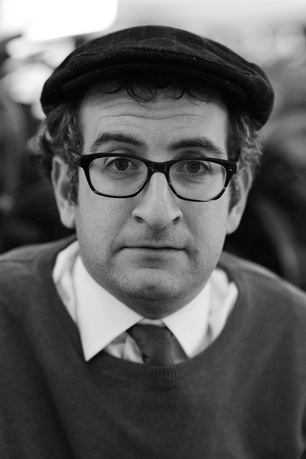 Humboldt County premiered at the South by Southwest film festival to excellent reviews and sold out crowds. It was really a dream come true and a few months later, Magnolia bought the film for distribution. Three weeks before the film came out, we called up Laszlo Kovacs, who is one of the greatest cinematographers ever to live and had been a mentor of ours for several years, and told him we wanted to get him together with Bogdanovich to view the film. Laszlo and Peter had worked together on many films but hadn’t seen each other in over 10 years. It was such a pleasure not only to show these two titans our work, but to provide an excuse for them to reminisce about shooting Targets in the 60s, and running away from the cops when they were filming illegally near the 405. It was an amazing night. And three days later, Laszlo died. He hadn’t been in great health, but it was still a shock. And I found myself listening to Peter do an interview on NPR talking about how he had just seen Laszlo, and the silver lining was that our first film was responsible for bringing them together one last time. 5) You have some pretty big names and amazing talent in your first movie. How did you go about recruiting the actors and crew for the film? Any memorable/funny experiences/stories you'd like to share from shooting it? 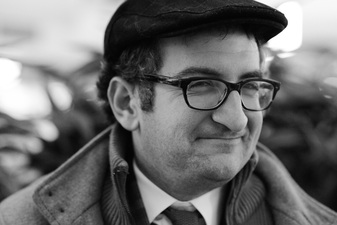 There’s so much we could say about that cast. Frances Conroy is like a jazz musician. Every take she does is brilliantly different and equally good. Chris Messina is one of those actors that can’t help but be truthful in front of the camera. Jeremy Strong has such a big heart that it fills up every ounce of the frame. Fairuza Balk is beautiful and enigmatic and can be both accessible and distant at the same time. Brad Dourif, in my view, has had a wildly unappreciated career, and is really one of our greatest actors. And then there’s Madison Davenport, who was only 9 when we shot the film and was probably the actor we had to give the least amount of direction to. Some people are just born to be actors and she’s one of them. The only other story that might be interesting to tell is that we had an actor attached to the role of Max, in the film, for about a year. And about three weeks before we were set to start shooting, we lost him. Darren and I were freaking out. And that’s when Jeremy Strong, who we had already cast, told us that the guy he was staying with out in Los Angeles might be good for the role. That guy? Chris Messina. He came in, did a kick-ass audition in which he punched a hole in my living room wall, and we hired him two days later. You must have serendipity on your side when making a film. 6) Tell us about your writing process. What are some of the most challenging obstacles about writing, and what are some methods you do to overcome them? Where do you derive your inspiration from? 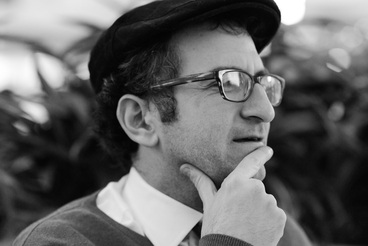 What I tell people who ask about my creative partnership with Darren is that the key to a good professional relationship is the same for a good romantic one: both sides must feel like they’re the lucky ones to be in the partnership. And if that’s ever not the case, it’s doomed to fail. The other key is that both people in the relationship must learn how to argue without ego. Darren and I met in utero, as both of our mothers were in the same Lamaze class. Suffice it to say, we’ve had a lot of time to develop our creative sensibilities together. So when it comes to writing, we’re generally on the same page when it comes to what we want to do. That’s not to say we don’t have arguments – we do. But it’s all in service of what will make the best story. Our process is that we first get together and talk. We spend months working out a strong outline for the piece and then, and only then, do we start writing. When we do, we split the outline up and write separately, sending our drafts to each other and rewriting our own work. My main obstacles for writing are the same obstacles most writers have – I hate it and I love it all at the same time. Getting started is always a bear. I’ll usually browse the Internet for several hours until my guilt and shame overwhelm me and I finally open Final Draft. My other two keys to writing are showers and running. Whenever I’m stuck, I’ll try to either take a run or take a shower. Both activities allow my brain to work on a particular problem without focusing on it head-on. I also get really clean. 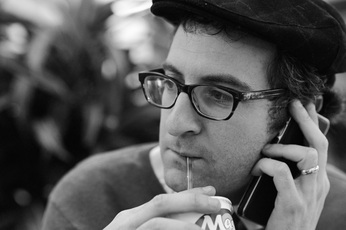 7) I know the day-to-day schedule changes rapidly for creative professionals, but what might a typical day look like for you? Do you have any routines that you try to stick to maintain some sort of consistency, keep productive, etc.? Oh, man. My days are completely ridiculous and lack consistency of any kind. Right now, I’m writing on a pilot so I’m in the writer’s room (and really shouldn't be answering these questions), so my day is pretty regimented. But most of the time, I’ll get up around 9 AM or so, futz around on the internet for a while and then get down to start writing by about 10:30 AM. I might have an acting audition or two over the course of the day, so that’ll break up my writing time, and then I might have rehearsal with Seth or something at night. But depending on what’s happening in my creative life at any moment, that could change. 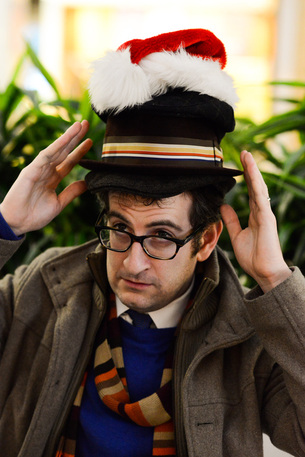 8) It’s difficult enough to build and manage a career in one specialty in this industry. How do you balance your time and efforts between acting, improving, writing, and directing? It’s tough and I don’t really have a “plan” per say. I just kind of prioritize whatever needs prioritizing on any given day. If I’m on an acting gig, then that obviously takes priority, but I’ll often sit in my dressing room or trailer and write whenever I’m not on the set. If we’re gearing up to shoot a film, then that obviously is the priority and everything else sort of recedes into the background. Thankfully, in terms of improv, I’m lucky to have a great producer, Jordan Bogdanovage, who helps Seth and I get everything done so I can just focus on the creative side. And that’s the same with the producers I’ve got for my films. It’s that support network that makes the balance possible. 9) What are some goals you have for yourself in the upcoming years, and what do you do to try and reach them? I’d love the career of Mark Duplass. He has a thriving acting career while he also makes great, and personal films with his brother. I’d love to be in that position. I’ve written and directed two feature films but at a pace that’s way too slow for my tastes. I’d love to make a film every other year or so while acting in other people’s projects in between those efforts. 10) Tell us about your newest film. How long did it take you to complete it, and what were some different challenges you encountered in making it, as compared to the first? What are some lessons you learned from doing the first film that you applied to the second to help with this? My new film is called Growing Up and Other Lies, and it stars me, alongside Adam Brody, Josh Lawson, Wyatt Cenac and Amber Tamblyn. Additionally we have some really great actors in supporting parts like Scott Adsit, from 30 Rock. It’s a comedy about four friends – who all live in New York – and decide, on the eve of one of them moving out of the city, to recreate their greatest adventure, which is to walk the entire length of Manhattan from the northern tip to the southern tip in a day. It’s a road trip movie on foot as they meander down the island and it all takes place over 24 hours. It’s a comedy, but a rooted, grounded one in the vein of Diner. Compared to our first film, this one had a whole set of new challenges. First of all, instead of shooting in the middle of the woods, we were in the middle of Manhattan – which is its own beast. Second of all, because of the nature of the film, we had 57 locations to shoot in 18 days. We almost broke our location manager (and our production designer for that matter). So it really felt like an entirely different kind of project than Humboldt County. But I’d say the biggest difference for Darren and I was that we were just more prepared. We came into this project knowing what we needed to do to be prepared to shoot fast and loose. There was much more improvisation in this picture than on our last picture, and the fact that I play a lead role in the movie was an added challenge for us. But I’m so pleased with the final result. We’ve been playing the festival circuit the last few months and I’m really excited to announce that we’ve sold the film and it’ll be coming to theaters and Video On Demand on March 20th of 2015. So please look out for it! Indie films need all the help they can get. (Check out their new blog for the movie, where Danny and Darren discuss more in depth of how it was made and the process throughout: http://growingupandotherlies.tumblr.com)
Facebook: - Darren and I have a page: www.facebook.com/darrendanny - The page for our new movie: www.facebook.com/growingupandotherlies - My improv group’s page: www.facebook.com/understudiesimprov Thank you so much, Danny, for giving us this incredible insight into your thriving career!
I know he's changed my outlook on improv. Leave a comment below if Jacobs has personally inspired you somehow in the past, or if his story has motivated you to do something for your career - we'd love to hear it!
7 Comments
Seth B.
12/18/2014 01:12:30 am
He truly is a gift to perform/work with. I highly recommend it should any of you get the opportunity.
Reply
Nicole Fong
12/18/2014 03:06:35 am
Hey Seth, if you're the other half of "The Understudies," I just wanted to say you're also an amazing performer! :D Great show in November, and I can't wait for the next one! :)
Reply
James Reston
12/18/2014 02:23:18 am
I actually saw Danny's feature film at the Napa Film Fest and it was the best film I saw at the festival that week. I hope many other get the chance to view it.
Reply
Nicole Fong
12/18/2014 03:07:28 am
That's awesome, James, thanks for sharing! I'm sure Danny and Darren will be thrilled to hear that! :)
Reply
Trevor
12/24/2014 12:30:31 pm
Great interview. Really loved this one. Bookmarking for a second read!
Reply
Nicole Fong
12/24/2014 03:59:39 pm
Aww, thanks Trevor - that means a lot coming from you! :D
Reply
Sandra Decker
1/23/2015 04:50:59 am
I saw both your movies and enjoyed them. You are very talented along with your friend Darren. May God bless you in your career efforts.
Reply
Leave a Reply. |
AuthorMe. You. Help inspire unwritten words. Archives
September 2021
Categories |

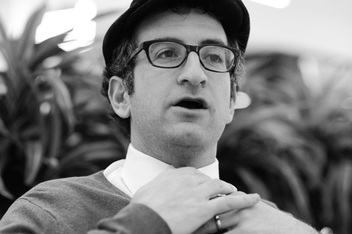
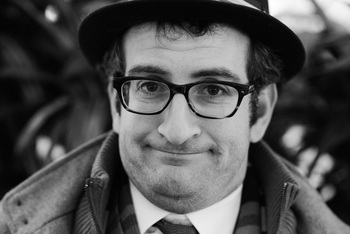

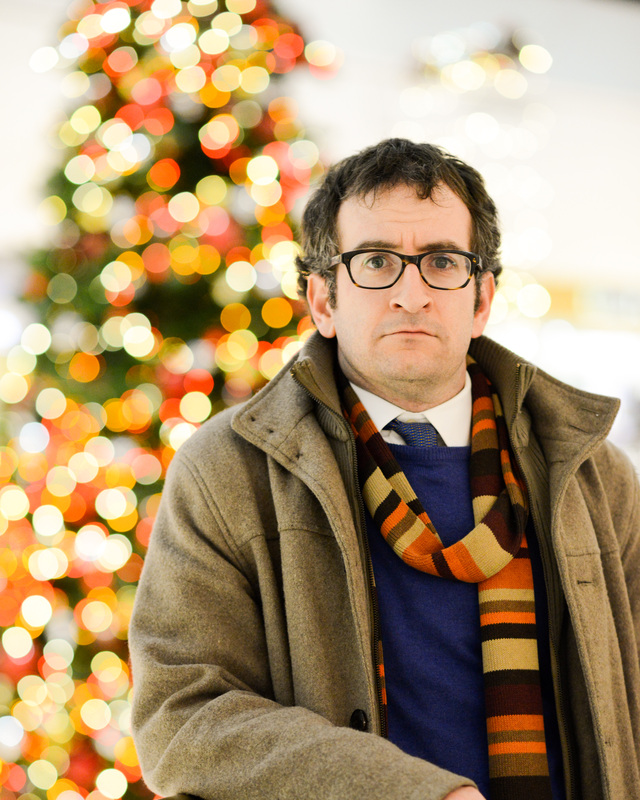


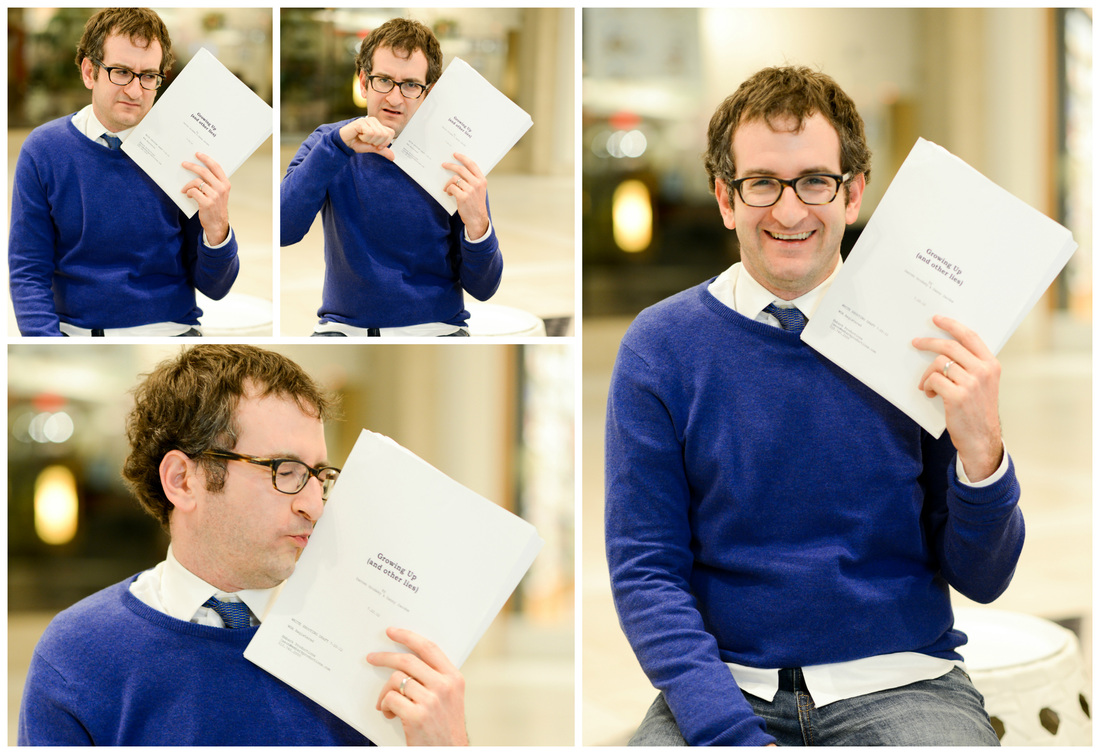
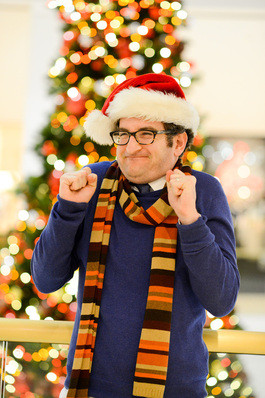
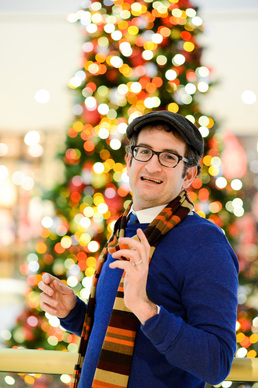


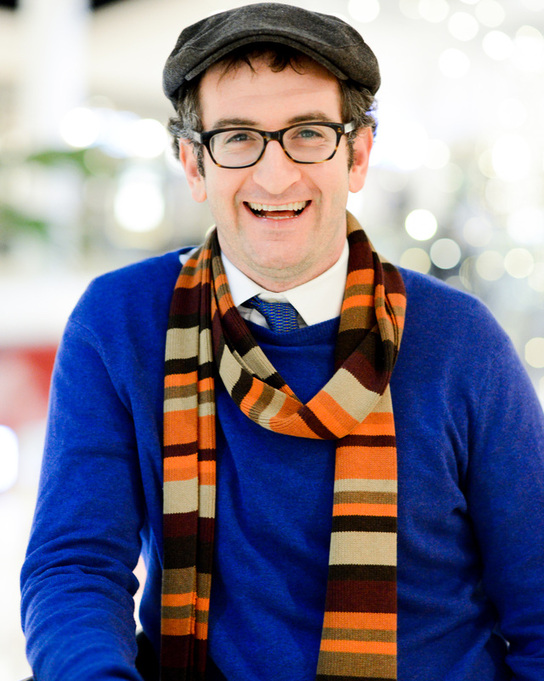
 RSS Feed
RSS Feed
